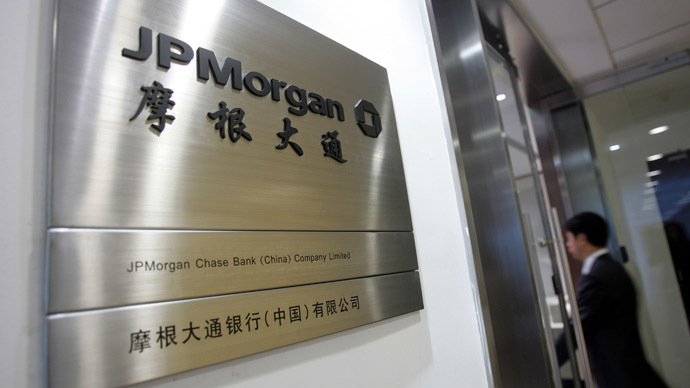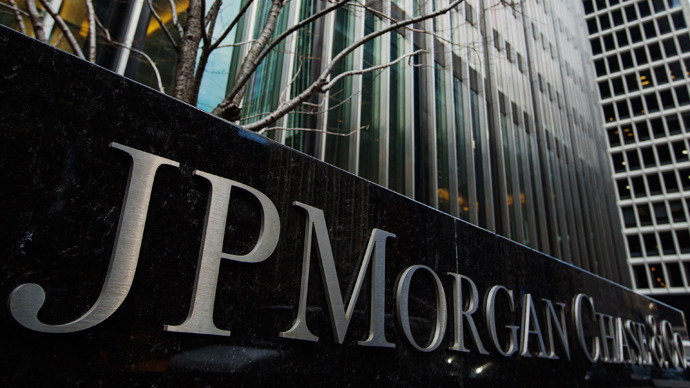US authorities launched an investigation into whether JPMorgan Chase hired the children of key Chinese officials to help it win business for a Hong Kong office. The case is the latest in a series of probes into the bank’s operations.
The Securities and Exchange Commission (SEC) is questioning the
relationships of the largest US bank with at least two families
in China, a source familiar with the matter told Reuters.
The New York Times says the bank hired the son of a former
Chinese banking regulator who has become the chairman of the
state-controlled China Everbright Group. After his joined the
bank, JPMorgan won several assignments from Everbright, the paper
reports.
Another JP Morgan ‘suspect’ is a daughter of a Chinese railway
official who was later accused of taking bribes for handing out
government contracts, the Times reports, citing the US document
and public records.
Hiring politically well-connected executives is allowed by US
law, while taking on relatives of the heads of state-owned
companies with the purpose of winning underwriting business could
be classified as bribery under the US Foreign Corrupt Practices
Act.
So far, the bank hasn’t been accused of any wrongdoing, as there
is no documentary evidence any of the two ‘suspects’ were
unqualified. Under the new probe, the SEC is checking whether the
bank’s office in Hong Kong used his well – connected executives
to routinely win contracts from the companies where they worked.
The practice of hiring politically connected Chinese employees
was at its peak in the early-to-mid 2000s in the framework of so
– called ‘elephant hunting’. The term was used to describe the
situation where Wall Steer firms sought to receive mandates to
manage multi-billion dollar offerings of stock by China’s
state-owned giants.
The latest investigation adds to the long least of at least a
dozen investigations initiated by the US and foreign governments,
with the $6.2 billion "London Whale" trading scandal
thus far being the biggest case.
Former JPMorgan Chase traders Javier Martin-Artajo and Julien
Grout were charged by US federal prosecutors for conspiracy,
falsifying books and records, wire fraud, and registering false
filings with the Securities and Exchange Commission.
The bank has also revealed that it is facing criminal and civil
probes by the US Department of Justice in California into
mortgage bonds that it sold before the financial crisis, Reuter’s
reports.
Since 2011, the bank has been saying that it "is currently
experiencing an unprecedented increase in regulation and
supervision, and such changes could have a significant impact on
how the firm conducts business".
JPMorgan could have legal losses amounting to $6.8 billion beyond
an undisclosed sum that it has already set aside to cover those
charges, the bank calculated last quarter.
JPMorgan's annual litigation costs have been around $5 billion
for each of the last two years, Reuters reported.


